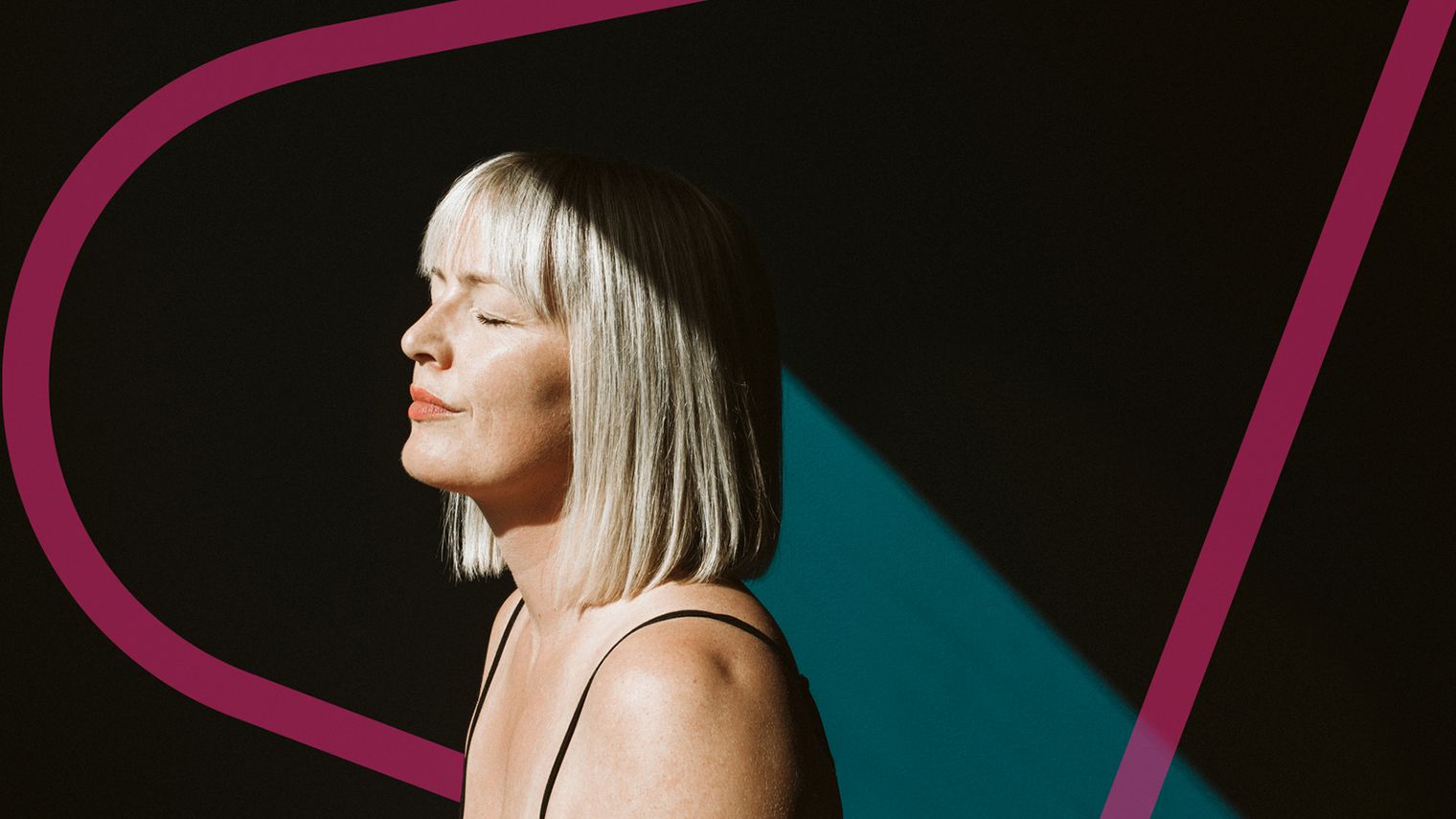I Never Believed in Complementary Therapies for Breast Cancer Effects — Until I Tried Them
May 31, 2022
Content created for the Bezzy community and sponsored by our partners. Learn More

Jarusha Brown/Stocksy United
I was always skeptical of complementary therapies, but I didn’t realize their benefits until I tried them to relieve cancer-related anxiety.
After receiving the news that I had no evidence of disease following breast cancer treatment, I got home and everything hit me like an emotional tsunami. When you have cancer, you tend to spend so much effort on getting through what you need to, that when you get to the so-called “other side,” all that anxiety can come flooding in.
To me, it felt toxic.
I had a meltdown in my kitchen — everything was so overwhelming. I looked around and saw all my food containers were plastic, and I knew that heating up food in plastic could be a cancer risk.
That’s when I realized that treatment is really only the start of this experience. Surviving cancer? That’s a whole other aspect that isn’t often addressed and should be.
For months, I struggled. I felt stuck in my breast cancer anxiety, wondering if and when it would come back, and I was truly white-knuckling my way through every day.
I thought my anxiety would fade, but the opposite happened. It just kept building and mounting until that anxiety was polluting my quality of life.
I knew I had to do something, but I didn’t trust that any kind of complementary therapy approach would be effective. Fortunately, I was wrong.


Taking a complementary approach
In 2016, when I was 51, I found a lump in my breast. Although it turned out to be benign, it led to more screenings and the discovery of breast cancer, followed by a mastectomy at Penn Medicine.
Like so many people who get breast cancer, my main focus during that time was navigating my care. I expected that, when it was finished, I would feel nothing but relieved. Obviously, that’s not what happened.
I discovered a local cancer care nonprofit here in Pennsylvania called Unite for Her. They had a free event where you could “sample” different therapies, like yoga and reiki. They also arranged to have organic produce delivered to everyone’s home for 8 weeks, along with advice from a nutritionist. They couldn’t do acupuncture at the event, but a practitioner was there providing information.
Not long after, I called the acupuncturist. The first thing I said was, “I don’t believe in this stuff, but I’m desperate.” She told me to come in and we could see where it would take us, which turned out to be a fantastic decision.
She was upfront that acupuncture isn’t a quick fix — you don’t do one session and walk away free of your anxiety. That turned out to be true, but it also didn’t take as many sessions as I thought it would.
At the same time, I started doing yoga and Pilates. Both included breathwork, a practice I’d done long before breast cancer. What was new to me was that one of the yoga classes had a sound bath, where they kind of drench you in this gorgeous sound from specialized bowls.
Not long after, I called the acupuncturist. The first thing I said was, “I don’t believe in this stuff, but I’m desperate.”
I’d never heard of sound baths before, and I was very skeptical. But much like acupuncture, I was surprised by how much it helped. My yoga teacher also developed a one-on-one yoga flow session just for me to help with anxiety, and I’d never had that before.
The relief I thought I’d feel from being a survivor finally kicked in thanks to these therapies. I had less pain and less worry. I also got a 3D nipple tattoo, which helped me feel comfortable in my body again. That was huge.
All of these therapies combined helped lift the emotional burden that weighed so heavily on me.
Creating connection points
Because of my experience, I ended up joining the patient advocate committee for the Society of Integrative Oncology, which recommends treatments approved by the Food and Drug Administration (FDA) in combination with evidence-based complementary therapies.
Not everything works for everyone, but being open to the possibilities might lead you to something that helps you.
I also started a peer support group on Facebook, which has grown to over 1,000 members. We discuss complementary therapies in addition to everything else about navigating life with breast cancer.
I also created Breast Health 101 with Marianne on Facebook, which provides advice on how to better care for your breast health. I share information I’ve learned through my experience that’s geared toward those who’ve never had breast cancer. My hope is that, with the information I give them, they’ll never be diagnosed or will be diagnosed much earlier.
Sometimes, I’m still amazed I was the person saying I didn’t believe any of this complementary stuff did anything. Now, I’m the one asking my group: Have you tried mindfulness? Have you tried reiki? What about art therapy or meditation?
Not everything works for everyone, but being open to the possibilities might lead you to something that helps you. I’m grateful I took that step and gave it a try — and that I have the opportunity to let others know there are options out there, no matter where they are in their experience.
Medically reviewed on May 31, 2022
1 Source


Like the story? React, bookmark, or share below:
Have thoughts or suggestions about this article? Email us at article-feedback@bezzy.com.